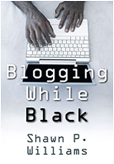NABJ: Major News Outlets Reject Black Talent in Prime Time
The Wire (NABJ)
In reaction to an ostensible trend in cable news to pass over African American talent for prime time programming, the National Association of Black Journalists (NABJ) continued discussions this week with several civil rights organizations to address the matter and direct a definite course of action.
“We appreciate the support of like-minded organizations stepping up to affect change as black journalists are ignored and in turn, black communities get shortchanged in the coverage of important issues,” said NABJ President Kathy Y. Times. “We are dedicated to getting this issue resolved.”
Less than two weeks ago, Times released a letter to NABJ’s membership and supporters expressing her disappointment with CNN regarding yet another missed opportunity to diversify its nighttime lineup. The NAACP also released a statement that criticized the network’s stance. The forthcoming departure of former New York Governor Eliot Spitzer as host of two short-lived prime time shows for the network opened up a void that was ultimately filled by former CNBC anchor Erin Burnett – a move seen by some as more than coincidental.
“I don’t understand any major network’s rationale for not being as inclusive as possible,” said Lawyers’ Committee for Civil Rights Under Law Executive Director Barbara Arnwine. “This lack of representation has been brought to the major networks’ attention repeatedly over the years. It is time for them to walk the walk of diversity at all levels, including prime time talent positions.”
Currently, there are no African American anchors hosting prime time news hours for any major cable network. While MSNBC is reportedly on the verge of offering civil rights activist Al Sharpton his own prime time slot, there are no black journalists who can tout a similar promotion.
NABJ Executive Director Maurice Foster also conveyed his frustration with CNN and other major news outlets for their apparent unresponsiveness.
“Our presence in the prime time slot makes a big difference in terms of shaping public opinion of each issue,” said Foster. “The suggestion that black journalists can’t do it just doesn’t cut the mustard. [Cable Networks] know the talent is there, they just don’t believe in them.”
Prominent civil rights organizations like the National Urban League, NAACP, as well as the Lawyers’ Committee for Civil Rights Under Law have all pledged their support for a drastic course of action should this matter continue to be overlooked.
“We have a machine here poised to do a lot of things,” said Foster, speaking of the potential for these various groups to mobilize. “We are deeply serious about this.”




